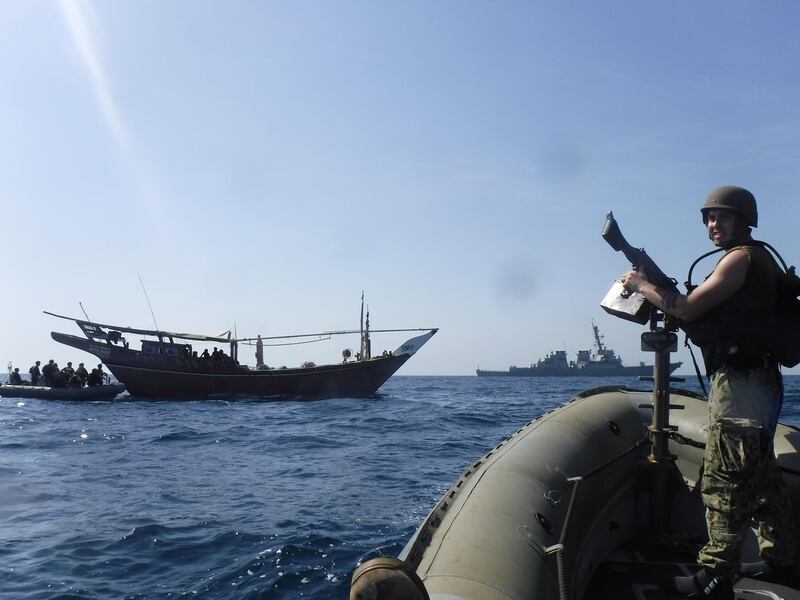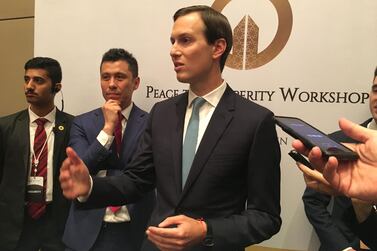Bahrain will host a global maritime security conference to address the Iranian threat to navigation security in the Arabian Gulf.
The country's Minister for Foreign Affairs, Sheikh Khalid bin Ahmed Al Khalifa, announced the summit alongside the US special representative for Iran, Brian Hook, on Wednesday.
Sheikh Khalid said the conference would probably take place this autumn and would follow up a February meeting in Warsaw.
In Poland, 65 countries took part in the conference on Iran, including the UAE and other GCC and Middle East countries, and European representatives.
Mr Hook told The National that the same countries would be asked to attend in Bahrain "but the invitations have not been sent out yet".
The conference will aim to reach a common understanding on addressing the challenge posed by Iran, Sheikh Khalid said at the Atlantic Council in Washington.
Mr Hook highlighted the growing maritime threat in the Gulf. At least seven tankers have been attacked in the Gulf since May.
On Friday, Mr Hook will meet ambassadors to promote the US plan to build a maritime coalition to deter further attacks.
He said the Sentinel Programme would “make it harder for Iran to disrupt freedom of commerce and navigation”.
Mr Hook did not specify which countries would attend the meeting at the State Department and it is unclear which states have agreed to join the programme.
“We need more assets in the theatre,” he said.
Mr Hook said at least 17 countries were affected by the May 12 attack on four tankers off the coast of Fujairah, which he attributed to Iran.
The US plans to install surveillance and protection for ships travelling through the Gulf.
It has already sent an aircraft carrier and B-52 bombers to the region, which Mr Hook said had “disrupted and deterred much of what we feared” with Iranian plots in the area.
Sheikh Khalid said US intelligence shared with Bahrain helped to prevent Iranian-sponsored attacks in the country.
Iran’s Islamic Revolutionary Guard Corps “has plotted to overthrow the government of Bahrain since 1981", he said.
“You see them in Syria, in Iraq, in Yemen, in eastern Saudi Arabia, and in Kuwait a Hezbollah cell was arrested," Sheikh Khalid said.
"The US has always been with us to stop malign Iranian activities but these efforts intensified under the current administration.”
But he stressed that Bahrain was not seeking regime change in Iran and Manama would take steps to improve relations if Tehran showed interest.
“What we are concerned with is the regime’s behaviour,” Sheikh Khalid said. “If the Iran takes a step forward, we will take two.”
But Tehran must stop supporting terrorism and proxies, he said.
“We need to see they are not back-stabbing us.”
Sheikh Khalid also issued a warning to Qatar, with which Bahrain has cut ties.
"No country should seek to get closer to Iran. Here I am talking about Qatar,” he said.
Bahrain, the UAE, Saudi Arabia and Egypt cut trade, transport and diplomatic ties with Qatar in June 2017 over its support for terrorist groups.
Sheikh Khalid said restoring ties would depend on Doha putting GCC interests first, rather than hosting Turkish troops or seeking closer ties with Tehran.
He was scheduled to meet US Secretary of State Mike Pompeo later on Wednesday.






